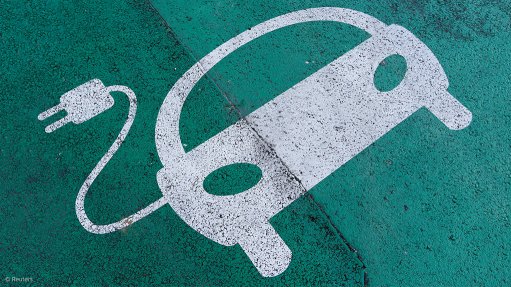Energy transition also requires choices to ensure food, water security
While the jury is still out on how exactly climate financing will be used to set South Africa’s energy sector on a low-carbon path, there are various other impacts and changes to industries and households looming, that are not discussed as often.
Some of these issues and considerations were unpacked in a webinar hosted by the Black Energy Professionals Association, with comments from exhibition host Enlit Africa head of content Claire Volkwyn, research institute Trade and Industry Policy Strategies senior economist Nokwando Maseko and civic education institution Rosa Luxemburg Stiftung South climate justice project manager Dr Roland Ngam.
Volkwyn raised concern at how the energy transition dialogue was often dominated by job security and inclusion, while water and food security requirements were rarely mentioned.
The energy transition must, however, also help to address these concerns as it poses major developmental and “going green” opportunities.
Maseko, in turn, mentioned that the coal sector employed about 200 000 people throughout the value chain, while many communities in coal mining areas had a dependence on the coal mining or coal-burning economy.
She asked, however, how people who had not been directly employed in the sector’s value chain, and that do not have the needed skills, would be included in the transition.
Ngam, meanwhile, stated that a clean energy transition could help to mitigate the devastating effects of climate change, but asked what would be done about the increasing pressure on food and water systems.
He said the energy transition and the economic betterment it would bring for businesses and households would also bring about more pressure on food and water systems.
He highlighted that bringing in renewable energy should not just be about cleaner power generation, but bringing about renewal and restoring ecosystems and water systems that were damaged by combustion power operations in all their various forms, from extraction through to combustion.
Maseko suggested that land previously used for coal mining, and/or coal processing and combustion, start being rehabilitated and used for agricultural purposes, as part of the just transition, and involve people that were previously not involved in any work opportunities in the area.
Ngam further explained that large emitters would have to pursue new ways of working at a pace equal to how quickly new solar installations were popping up, with a focus on climate-smart solutions, such those around water use, the order of the day, for example.
When asked whether Ngam believed climate change could be completely stopped, he responded that a systems change can go very far into limiting the extremes of climate change and help society to become more resilient.
“This means building better, farming better and travelling better. Some solutions are not feasible in South Africa’s cities, such as expecting every person to switch to bicycles as a mode of clean transport instead of vehicles, as many cities have done abroad, but there remain incremental changes people can do. It starts in the mind,” Ngam said.
He added that people should start considering where they buy their clothes, and how often, since all of those decisions have an environmental cost that an energy transition alone cannot solve.
Ngam noted that there was a multi-sectoral transition happening, not just an energy transition, and that the electrification of buildings, systems and vehicles would require holistic thinking that included considerations such as food and water security.
Comments
Press Office
Announcements
What's On
Subscribe to improve your user experience...
Option 1 (equivalent of R125 a month):
Receive a weekly copy of Creamer Media's Engineering News & Mining Weekly magazine
(print copy for those in South Africa and e-magazine for those outside of South Africa)
Receive daily email newsletters
Access to full search results
Access archive of magazine back copies
Access to Projects in Progress
Access to ONE Research Report of your choice in PDF format
Option 2 (equivalent of R375 a month):
All benefits from Option 1
PLUS
Access to Creamer Media's Research Channel Africa for ALL Research Reports, in PDF format, on various industrial and mining sectors
including Electricity; Water; Energy Transition; Hydrogen; Roads, Rail and Ports; Coal; Gold; Platinum; Battery Metals; etc.
Already a subscriber?
Forgotten your password?
Receive weekly copy of Creamer Media's Engineering News & Mining Weekly magazine (print copy for those in South Africa and e-magazine for those outside of South Africa)
➕
Recieve daily email newsletters
➕
Access to full search results
➕
Access archive of magazine back copies
➕
Access to Projects in Progress
➕
Access to ONE Research Report of your choice in PDF format
RESEARCH CHANNEL AFRICA
R4500 (equivalent of R375 a month)
SUBSCRIBEAll benefits from Option 1
➕
Access to Creamer Media's Research Channel Africa for ALL Research Reports on various industrial and mining sectors, in PDF format, including on:
Electricity
➕
Water
➕
Energy Transition
➕
Hydrogen
➕
Roads, Rail and Ports
➕
Coal
➕
Gold
➕
Platinum
➕
Battery Metals
➕
etc.
Receive all benefits from Option 1 or Option 2 delivered to numerous people at your company
➕
Multiple User names and Passwords for simultaneous log-ins
➕
Intranet integration access to all in your organisation


















